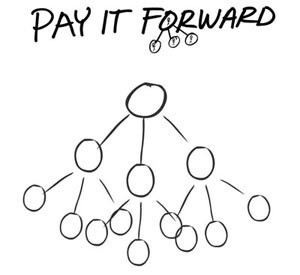By Barbara Hewitt
Penn students will soon be leaving campus for internships all around the world. Some of you will work with large employers in very established internship programs, while others might be the first intern in a new start-up. Penn students work in for-profit, nonprofit and public sector jobs in all sorts of functional areas. While internships are a great way to explore a career of interest and gain valuable skills, the quality of internships can vary dramatically. However, there are steps you can take to ensure that the experience is as positive as possible.
Ideally, think hard about what you want to accomplish during an internship before you accept one. You may want to develop new skills, learn about a new industry, or perhaps make money to pay your fall tuition. (In fact, all three of these goals might be important to many of you!) Think about how many hours you can devote to the internship each week and how many weeks you would like to work. The more clear you are on these parameters the easier it will be to focus your search and prioritize your goals to find an internship that is a good fit. You should definitely have a discussion with your supervisor to clarify expectations regarding the types of assignments you will handle, your work schedule, and how you will be trained. Discussing these issues BEFORE you commit to the internship can help stave of problems and disappointments down the road.
When you actually report to work, realize that as an intern you are a representative of the organization. It is important that you make a good impression at all times by being professional and diligent, reporting to work on time, and following the office dress code. You should also be observant of the “unspoken rules” at work, as they are frequently more important to fitting in than the more formal written rules. For example, is it customary for people to take rigid lunch breaks at noon or is a more flexible break schedule acceptable? Do people refer to each other by their first names or are higher-ups addressed more formally? Are you able to check social media tools like Facebook when at work or is that frowned upon (or outright forbidden)?
Be sure that you know when assignments and projects are due and meet all deadlines, even if it means staying late. Don’t be afraid to ask questions – it will increase your knowledge of the organization and demonstrate your interest in learning as much as possible. You may want to check with your supervisor early in your internship to discuss his or her preferred method of communication. Some supervisors have an open door policy and encourage interns to stop by when they have questions. Other might prefer a more formal weekly meeting or request that you send an email when something comes up.
The attitude that you display as an intern is critical. Work hard to demonstrate a positive demeanor at work, as no one likes to work with a complaining, unhappy coworker…especially an intern who will only be in the office for a few months. Make the most of menial tasks by doing them well and without complaining. Virtually all internships (and jobs, for that matter) have some mundane components. If you are unhappy with most of your assignments, take the initiative and ask your supervisor about taking on different or additional responsibilities which interest you more. Generally, supervisors will be impressed with your initiative and drive. However, be sure not to do this too early in the internship. It is important to develop relationships with your supervisor and colleagues and gain an understanding of the organization before assuming that you will be entrusted with higher level assignments.
An internship provides a great opportunity to take advantage of being on the “inside” of an organization by talking to other employees and making contacts. You may want to arrange informational interviews to learn more about other departments in the organization. Collect business cards as they often come in handy when networking for a full-time job down the road.
Hopefully the internship will be a stepping stone to additional professional opportunities. Save copies of things you create for future reference (web pages, flyers, press releases, articles, etc.). Learn as much as you can from your experience by seeking and accepting feedback about your performance, including constructive criticism. Try not to be defensive when a supervisor suggests ways to improve your performance. Request an exit interview to discuss the internship as a whole. Before leaving, ask for a letter of recommendation. Open a credentials file with Interfolio to house the letter if you haven’t already done so.
At the end of the summer, write a thank you note to your supervisor for his or her guidance. Hopefully your experience was a good one, and you have developed a relationship that will continue into the future. Keep in touch with your co-workers and supervisor after leaving the site, as they can often be very helpful as you begin a full-time job search.
Most of all ENJOY your experience. Internships provide a unique opportunity to experience a new work environment and career – take full advantage, as summers during college are limited commodity!
(Blog entry based on Career Services “Tips on Making the Most of Your Internship” website.)







